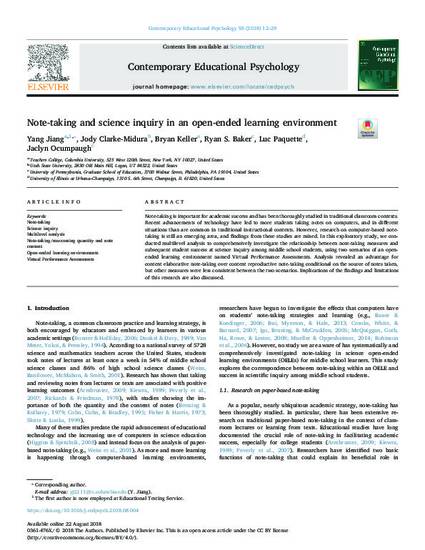
Note-taking is important for academic success and has been thoroughly studied in traditional classroom contexts. Recent advancements of technology have led to more students taking notes on computers, and in different situations than are common in traditional instructional contexts. However, research on computer-based note-taking is still an emerging area, and findings from these studies are mixed. In this exploratory study, we conducted multilevel analysis to comprehensively investigate the relationship between note-taking measures and subsequent student success at science inquiry among middle school students, using two scenarios of an open-ended learning environment named Virtual Performance Assessments. Analysis revealed an advantage for content elaborative note-taking over content reproductive note-taking conditional on the source of notes taken, but other measures were less consistent between the two scenarios. Implications of the findings and limitations of this research are also discussed.
